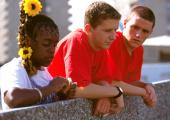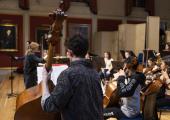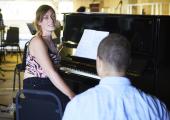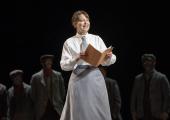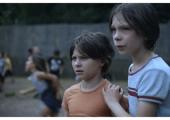Wicked review - overly busy if beautifully sung cliffhanger

Musical theatre behemoth becomes an outsized film - and this is just part one
"No one mourns the wicked," we're told during the immediately arresting beginning to Wicked, which concludes two hours 40 minutes later with the words, "to be continued" flashed up on the screen. Will filmgoers mourn that they have to wait an entire year to see the second part of this supercharged screen adaptation of the stage musical blockbuster that London and New York audiences can currently absorb in a single sitting? (Not for nothing has the show taken up seemingly permanent residency at Broadway's largest theatre, the Gershwin.)


